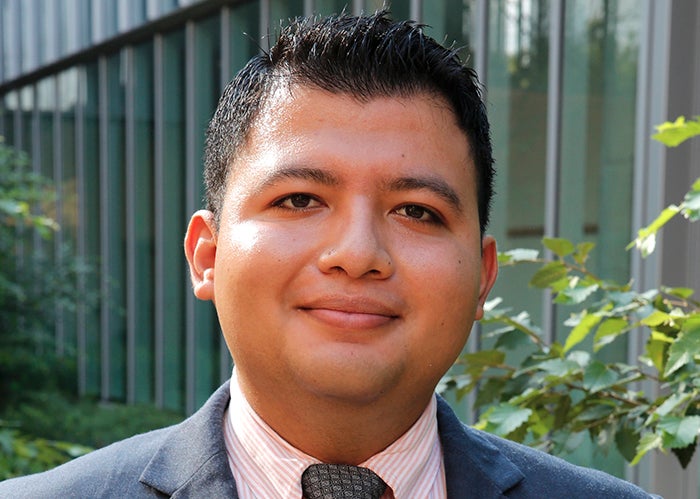Brandon García Pérez is a recently enrolled student in the Master of Energy Economics program in Rice’s School of Social Sciences. As a predoctoral fellow in Mexico studying energy economics, García Pérez attended the 2023 STaRT@Rice program to receive more specialized training that would support his transition to the electricity and power industry.
“I fell in love with Rice,” said García Pérez. “It's a really close-knit community, but it’s also very rigorous.”
Prior to coming to Rice, García Pérez majored in public policy, which placed equal focus on economics and policy. Professionally, in Mexico, García Pérez investigated energy-related issues such as exploring how people adopt photovoltaic solar systems and identifying problem areas in that market. In addition to transitioning into the electricity and power industry, García Pérez is excited to learn more about oil and gas as a MEECON student.
Last May, García Pérez was notified that he was a recipient of the Frédéric Bastiat Fellowship awarded by the Mercatus Center, which would run for a year starting in August 2024. The Mercatus Center, based out of George Mason University, offers annual fellowships to students primarily at the graduate level. The Frédéric Bastiat Fellowship is awarded to graduate students from around the world who focus on fields such as public policy, economics, political science, and law.
As part of the Frédéric Bastiat Fellowship, students travel to Washington, DC for four different weekends where they exchange ideas on various policy ideas and issues. The $5,000 award includes travel and accommodations for the meetings in Washington DC, readings that are required of the fellows, and a stipend.
García Pérez underwent a thorough application process for this competitive fellowship, which included submission of a background statement, transcripts, a personal essay, and a professional essay.
“In my case,” recounts García Pérez, “I discussed how I studied energy economics for my job, and I can explain process differences between the United States and a developing country like Mexico.”
After his graduation, which is anticipated to be in 2025, García Pérez hopes to take what he has learned from the fellowship and from the MEECON program and apply it as a consultant in public energy economics.
“The MEECON program is very welcoming,” said García Pérez. “I have peers who come from very different backgrounds, such as biological sciences, history, and engineering. The MEECON program is very diverse, and we are provided with all the tools that we need to succeed.”
The Master of Energy Economics (MEECON) is a 12-month, full-time professional master’s program designed to educate future leaders and strategic thinkers in the energy sector. Students develop skills to provide insightful analysis of energy markets in order to inform future market orientation, capital asset decisions and firm strategic direction. Built upon programs in the Economics Department and the Baker Institute’s Center for Energy Studies (CES), the Master of Energy Economics provides a new avenue for energy professionals to develop human capital relevant for business development and/or strategic planning roles.

